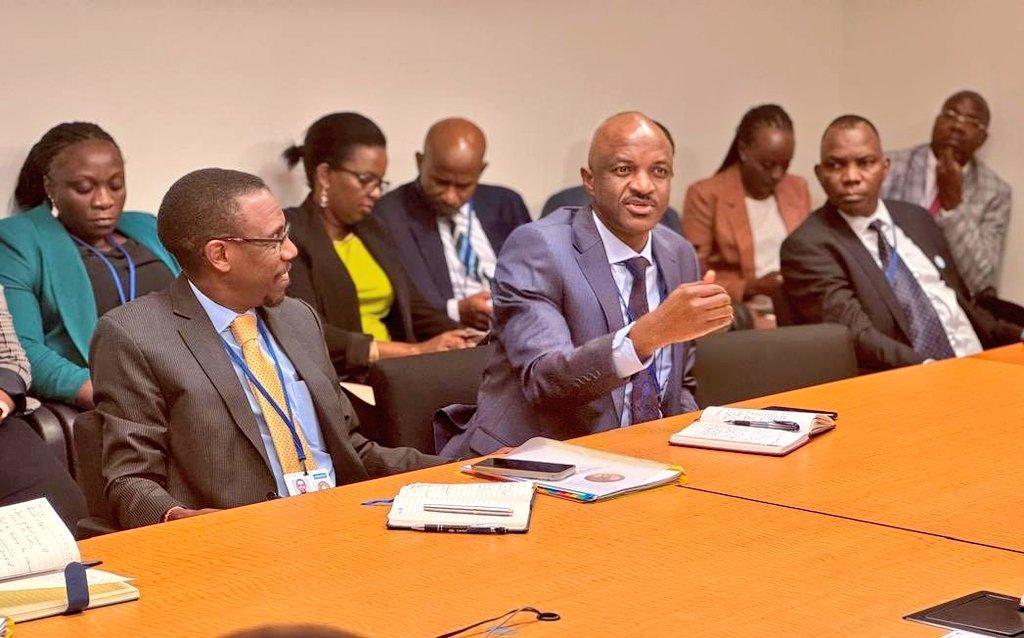Africa-Press – Uganda. Uganda has regained access to concessional funding from the International Monetary Fund (IMF) and the World Bank, nearly two years after lending was suspended following the passage of controversial legislation.
Analysts say this development signals renewed confidence in Uganda’s economic management and could accelerate the government’s strategic investment agenda.
Permanent Secretary and Secretary to the Treasury, Ramathan Ggoobi, announced that Uganda may borrow up to Shs7 trillion over the next three years.
He explained that the decision followed extensive engagement with IMF and World Bank officials, including Ugandans working in these institutions, to showcase the country’s macroeconomic stability and growth potential.
“We also interacted with Ugandans working in the IMF and the World Bank, and updated them on the state of Uganda’s economy. The Fund has continued to rank Uganda among the fastest-growing economies in Africa, and by extension in the world. Our macroeconomy is stable,” Ggoobi said.
The resumption of concessional financing aligns with the government’s Tenfold Growth Strategy, which targets investment in agro-industrial transformation, infrastructure, and technology.
Ggoobi noted that the World Bank has committed to supporting this strategy, while the IMF will provide guidance on fiscal discipline and macroeconomic stability.
“The World Bank has committed to support our tenfold growth strategy—investment in ATMs and their enablers. The Fund is focused on helping us maintain a stable macroeconomy as we build a richer and more prosperous Uganda,” he said.
Key sectors earmarked for funding include transport infrastructure, electricity transmission and distribution, regional city development, education, agriculture, water and irrigation, IT and skills development, social protection, and export guarantee schemes.
The International Finance Corporation (IFC) will provide long-term capital to private sector investors and co-invest with the government in strategic state-owned enterprises.
“IFC will provide patient capital to private sector investors and co-invest with government in State-Owned Enterprises,” Ggoobi added.
From a fiscal policy perspective, Uganda plans to negotiate a new IMF Extended Credit Facility (ECF) program after the 2026 elections, aimed at strengthening revenue collection, improving budget discipline, and consolidating the financial sector.
Economists say the return of concessional borrowing could reduce reliance on high-cost domestic borrowing, ease fiscal pressures, and create space for strategic investments that stimulate private sector growth and employment.
Ggoobi also highlighted the potential for Uganda to leverage technological innovations, such as AI, to boost productivity and competitiveness.
While the renewed financing signals confidence in Uganda’s fiscal and policy frameworks, experts caution that its long-term impact will depend on prudent debt management, efficient allocation of resources, and timely implementation of reforms.
If leveraged strategically, the funds could accelerate industrialization, strengthen public-private partnerships, and reinforce fiscal discipline — key pillars for sustainable growth.
For More News And Analysis About Uganda Follow Africa-Press






